Senior Lecturer in Occupational Therapy
Faculty of Health, Education and Society
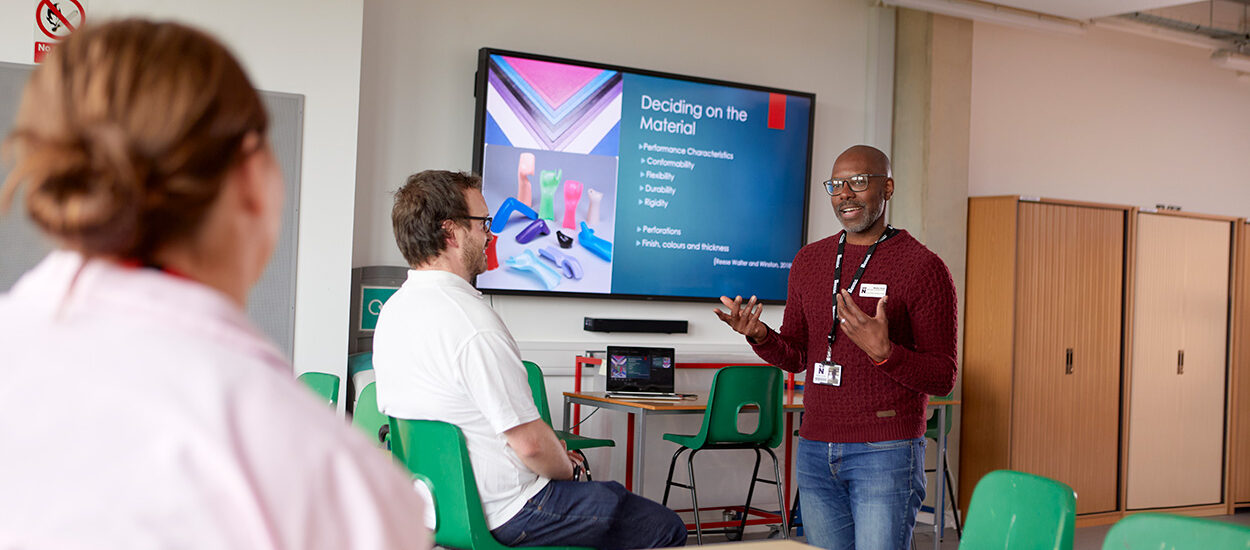
Advanced Occupational Therapy MSc
- Home
- Courses by subject
- Advanced Occupational Therapy MSc
Key Facts
-
Level
Master'sPG MSc
-
Duration
1 year Full time
2.5-4.5 years Part Time -
Starting
September
-
Full Time: £8,500
Part Time: £945 (per 20 credit module) -
Full Time: £17,495
-
Waterside
Updated 18/03/2025
Updated 18/03/2025
Get in touch
For questions regarding study and admissions please contact us:
UK STUDENTS ENQUIRIES
study@northampton.ac.uk
0300 303 2772
INTERNATIONAL STUDENTS ENQUIRIES
Overview
We are no longer taking applications for this course.
If you are a qualified occupational therapist and want to take your professional knowledge and skills to an advanced level to enhance your career prospects and extend your perspective on professional practice, then the University of Northampton’s MSc in Advanced Occupational Therapy is for you.
As one of the longest established Occupational Therapy schools in the UK, Northampton has a very highly regarded professional reputation.
Our Advanced Occupational Therapy MSc degree recognises the value of lifelong learning as a cornerstone of excellence in service delivery and is underpinned by the Royal College of Occupational Therapy Career Development Framework. The award structure ensures that the modules are both contemporary for current service needs and innovative, promoting engagement with emerging communities of practice. This is underpinned throughout using a high-quality evidence base.
Highlights
- Study at one of the longest established Occupational Therapy schools in the UK.
- Combine core modules with optional modules to build a unique qualification.
- Further your knowledge of occupational therapy and address areas of practice of interest to you as an autonomous clinician.
- Opportunity to complete a primary or secondary research project for a chosen topic.
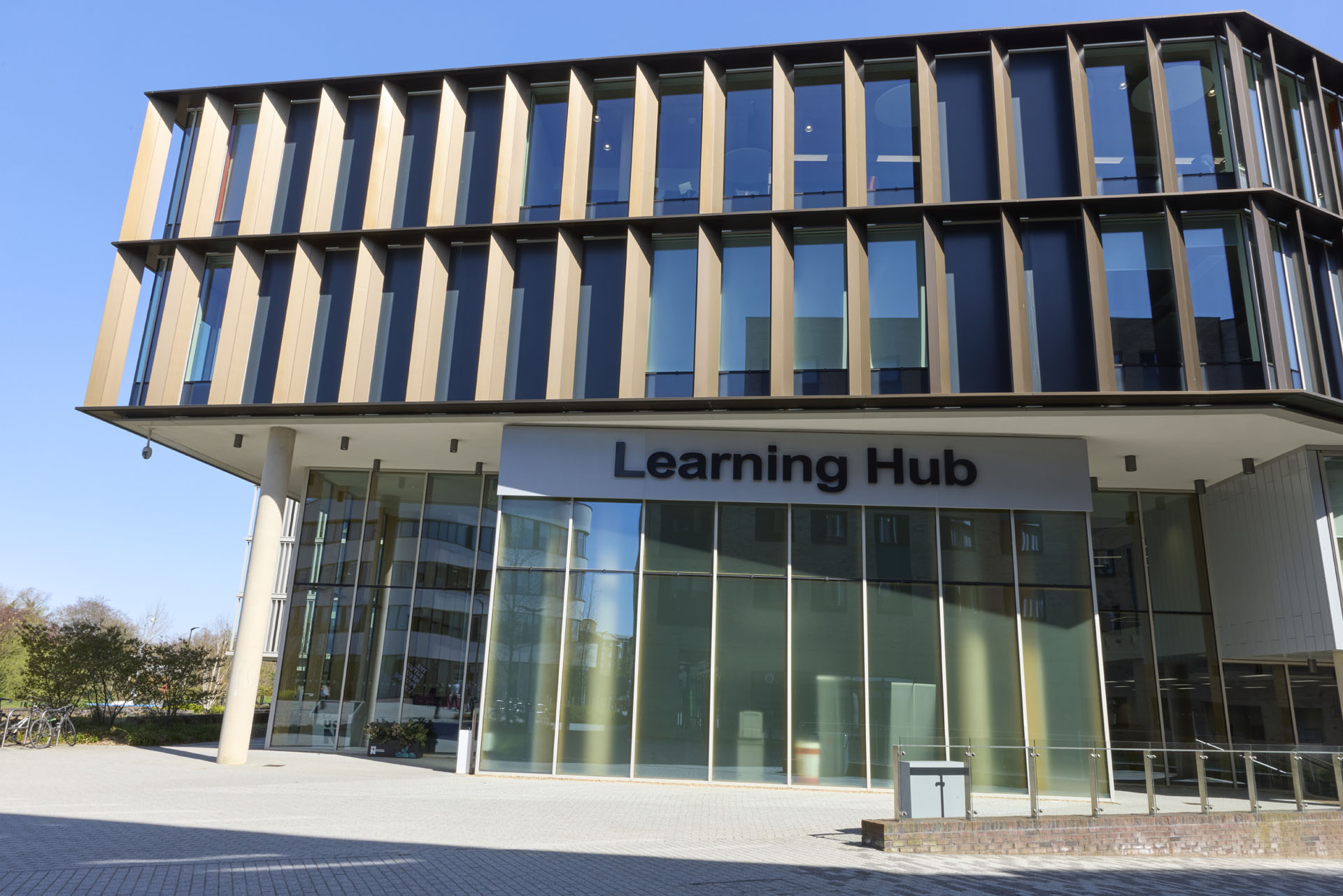
The Learning Hub is the biggest building on campus, home to our Student Information Desk, 24/7 library, teaching spaces, cafes, and more.

The big and spacious modern Senate building has various types of learning spaces, teaching rooms, our Bloomberg suite, Morley Room lecture hall, and cafes.
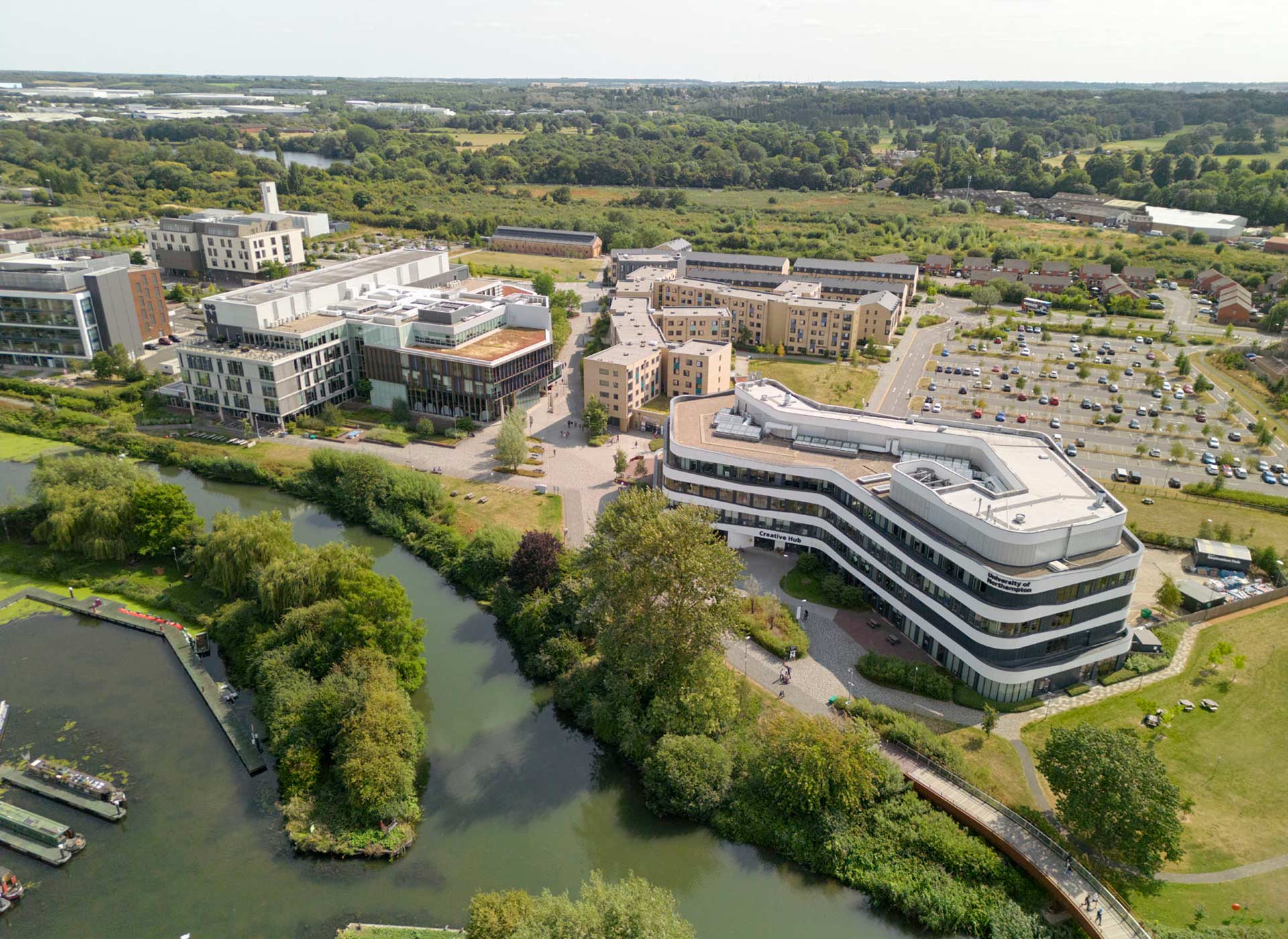
Waterside campus has everything students needs from: Learning Hub featuring 24/7 library, Creative Hub, on-site shop, restaurant, cafes and food outlets, multi-faith chaplaincy, student village hall, Students' Union and more. With only a short walk over the bridge into the town centre.
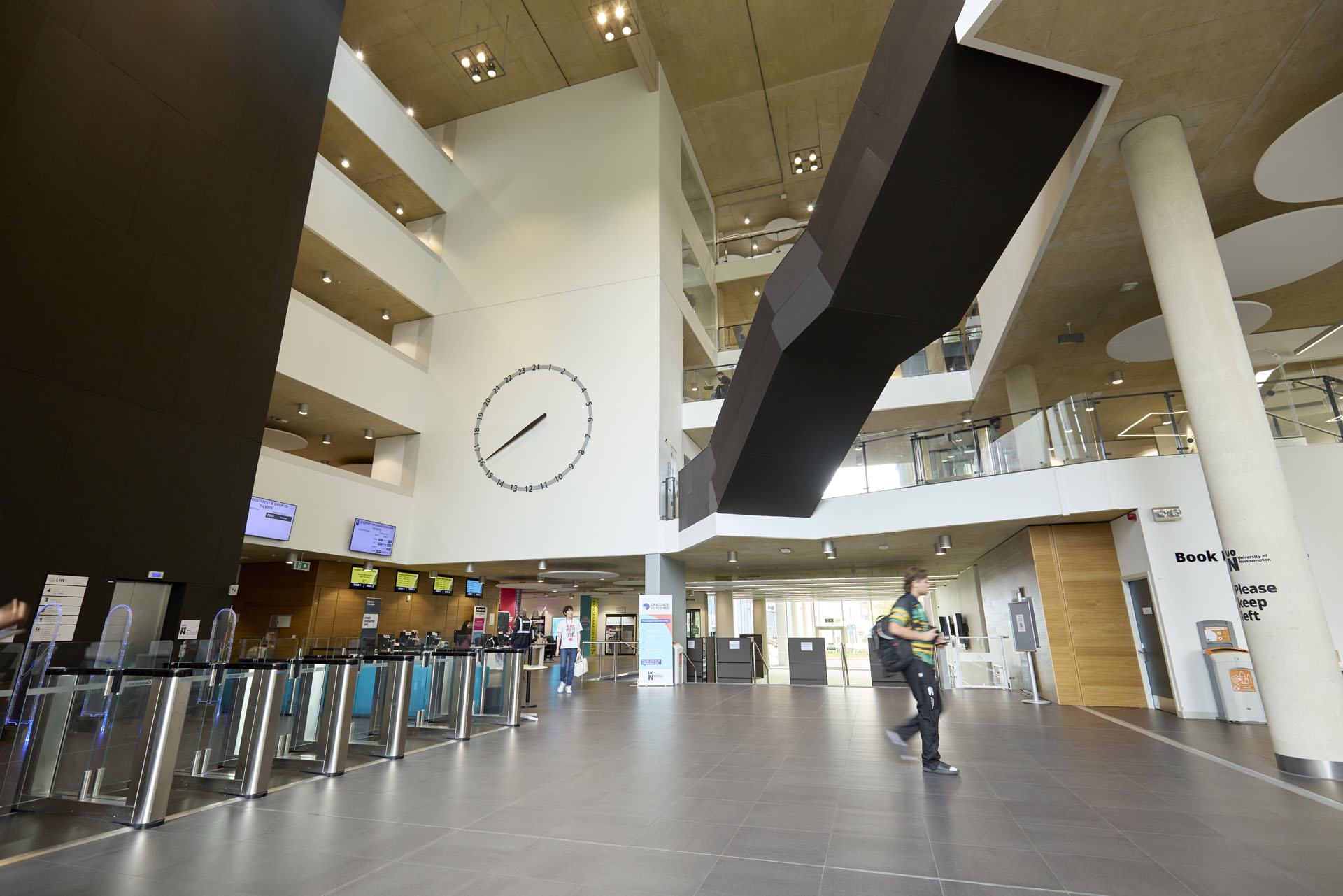
The Learning Hub and Student Information Desk would be a student's first point of call when needing support.

Our library covers three floors of the Learning Hub, with IT rich learning environments, including silent and group study spaces, physical books. Don't forget there are plenty more resources available online!
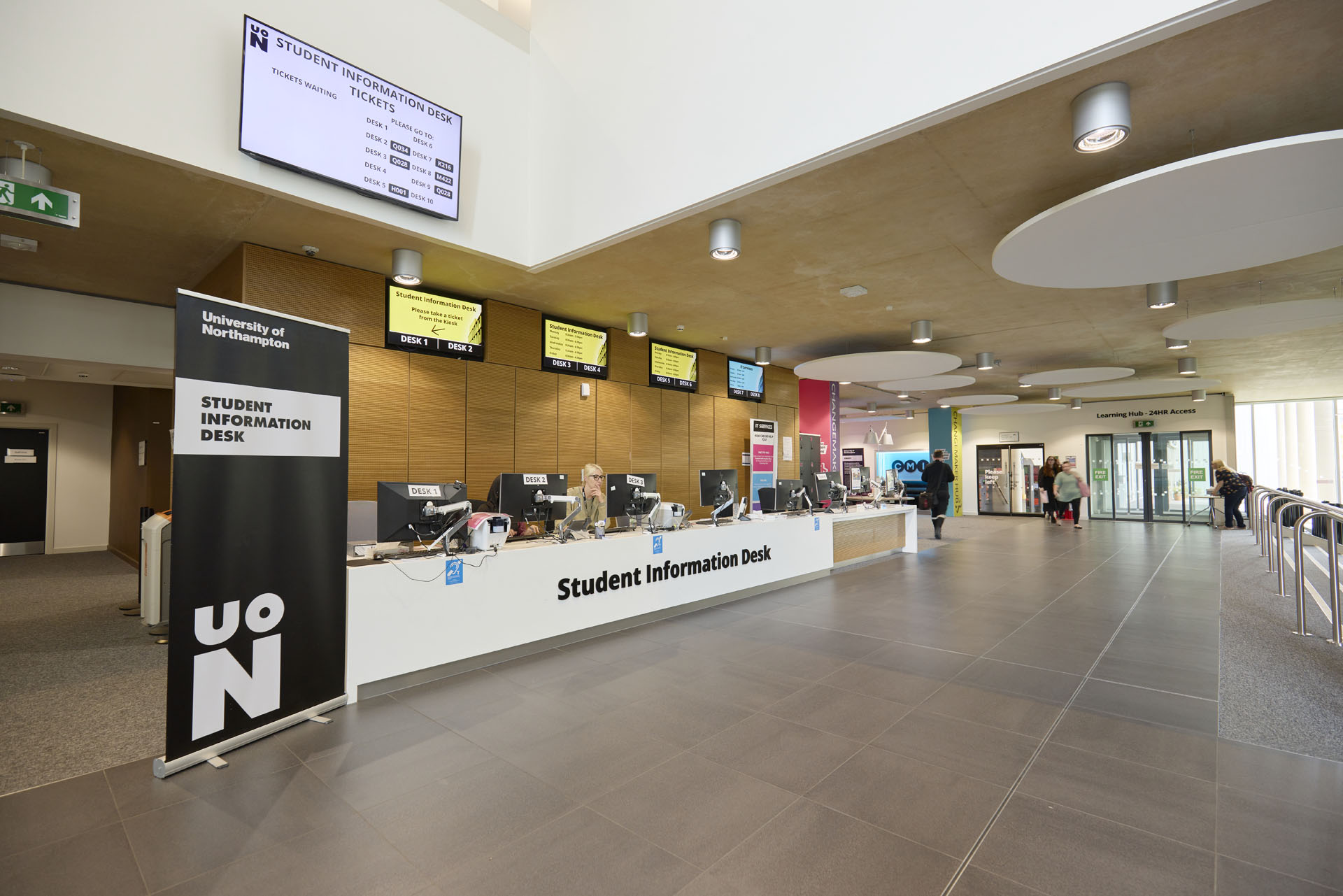
The Student Information Desk is the first place a student should go if they need any help. Here the team can direct you to academic support, mental health support, financial support, IT support, and more.
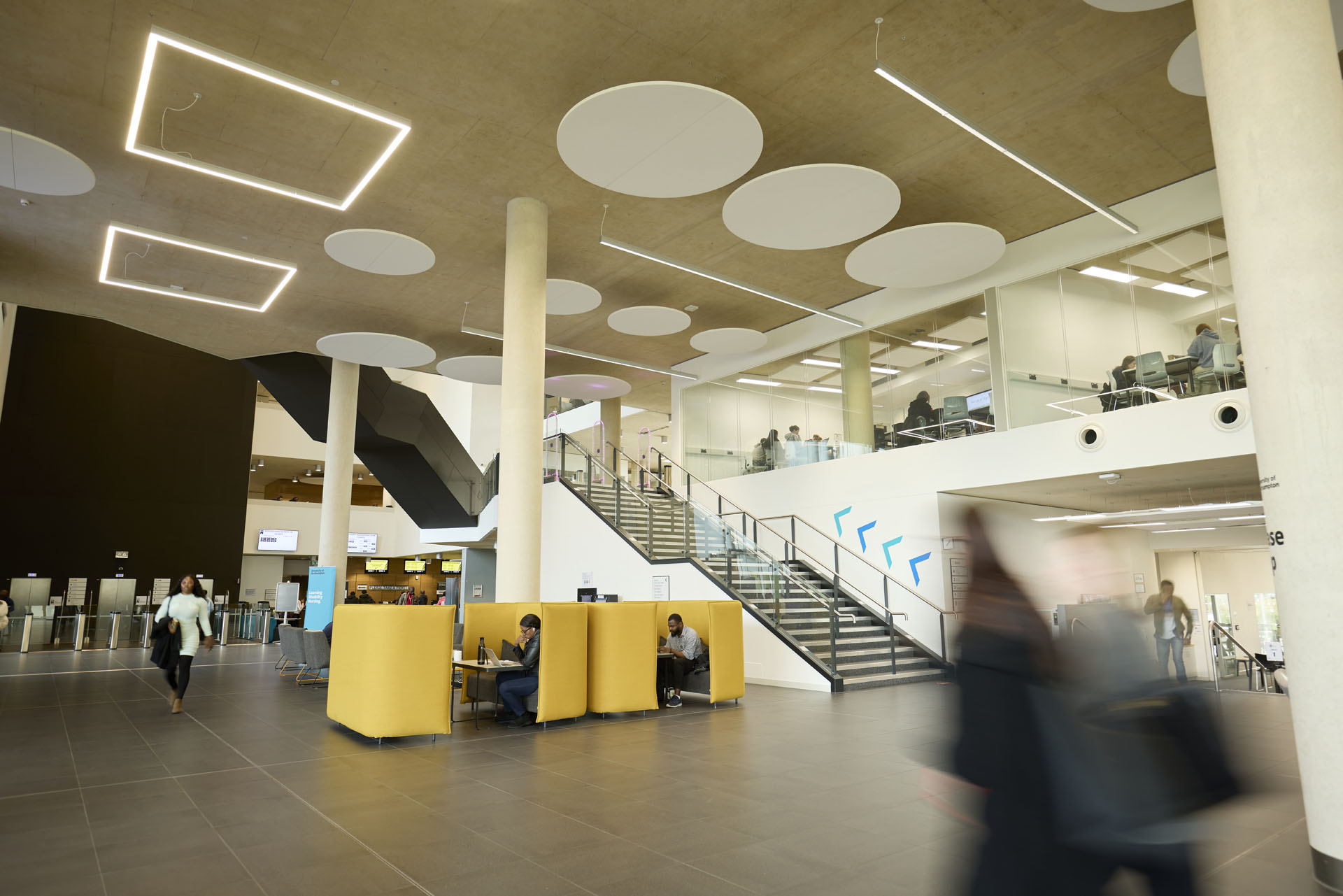
The Learning Hub is where every student will go for library support and classes, as well as food outlets and social events.
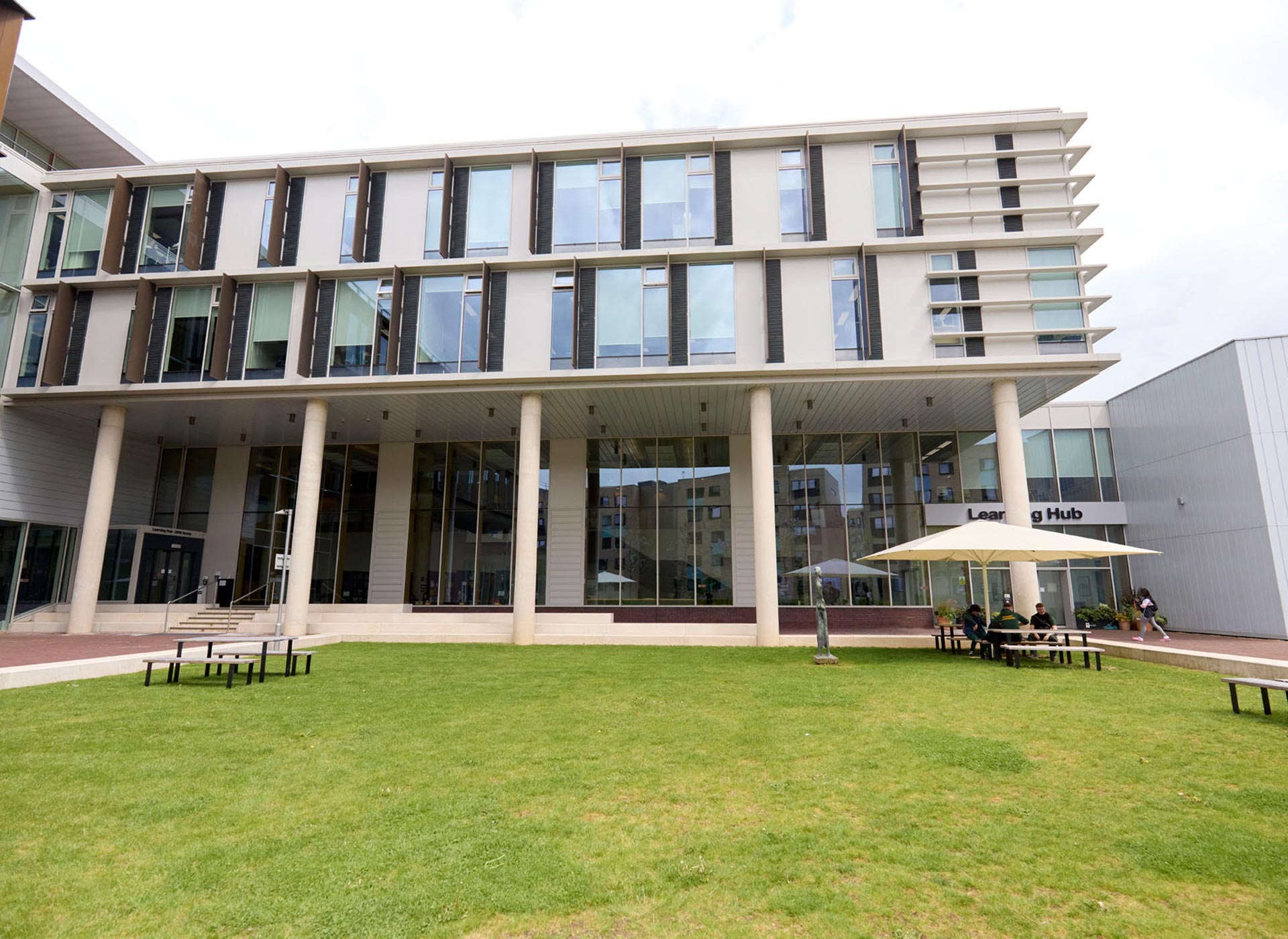
The Learning Hub also has lots of outdoor space for meeting with friends or finding some silent time between classes.

The Learning Hub is the biggest building on campus, home to our Student Information Desk, 24/7 library, teaching spaces, cafes, and more.

The big and spacious modern Senate building has various types of learning spaces, teaching rooms, our Bloomberg suite, Morley Room lecture hall, and cafes.

Waterside campus has everything students needs from: Learning Hub featuring 24/7 library, Creative Hub, on-site shop, restaurant, cafes and food outlets, multi-faith chaplaincy, student village hall, Students' Union and more. With only a short walk over the bridge into the town centre.

The Learning Hub and Student Information Desk would be a student's first point of call when needing support.
Entry Requirements
To study on the Advanced Occupational Therapy MSc degree, you will need to:
- Hold a recognised First or Second-Class Bachelor’s degree in Occupational Therapy in order to be eligible to apply for this MSc.
- If you have relevant professional and educational experience this will also be taken into consideration.
-
If English is not your first language you will need to demonstrate that you meet the minimum English language requirement to reflect the professional requirement of the HCPC standards from 2018/19 new entry:
- Minimum standard – IELTS 6.5 (or equivalent)
for study at postgraduate level.
For information regarding English language requirements at the University, please see our IELTS page.
- Minimum standard – IELTS 6.5 (or equivalent)
Upcoming Discovery Days
Discovery Days give you the best experience and insight to courses, people and facilities that interest you. Make your choice easier and come meet us.
Course Content
-
The development of this advanced professional thinking throughout our Master’s occupational therapy course will be transferable across other skills, thereby empowering practitioners to advance their own professional practice, and contributing to the quality of service provision within contemporary occupational therapy settings.
The typical structure of the programme:
- Occupation for Occupational Therapists
- Embedding Evidence to Enhance Practice
- Research Methods Philosophy and Design
- Implementing Innovative Change in Practice
- Professional Project
- Contemporary Communities of Practice
- Leading People in Health and Social Care Organisations (optional module)
- Comparative Health Systems (optional module)
- Educating and influencing others in health care (optional module).
List of modules:
Please note the modules shown here relate to the academic year 24/25. The modules relating to the academic year 25/26 will be available from June 2025.
-
-
Educating and Influencing Others in Health Care (20 Credits)
Module code: NURM079Status: DesignateThe purpose of this module is to provide practitioners with the tools, insights and perspectives to drive innovation within contemporary health and/or social care settings. The module uses active blended learning to promote students? understanding of education and change theory, including how this can be applied to influence practice transformation.
-
Research Methods - Philosophy and Study Design (20 Credits)
Module code: NURM106Status: DesignateThis module is designed to introduce students to a range of research methodologies relevant to health and social care contexts. Students will have the opportunity to explore both qualitative and quantitative methods and to consider how a variety of approaches may impact on the interpretation of research findings for practice.
-
Leading People in Health and Social Care Organisations (20 Credits)
Module code: NURM108Status: CompulsoryEvery health and social care organisation is made up of individuals whose behaviour, individually or collectively will impact on its ability to succeed and develop. This module considers a range of theories, tools and techniques with consideration of contemporary political and social influences, to help students understand and lead people working within health and social care organisations.
-
Occupation for Occupational Therapists (20 Credits)
Module code: OTHM003Status: CompulsoryThe fundamental philosophy of occupational therapy is the use of occupation as a therapeutic tool. This module will enable students to explore, debate and evaluate their understanding and application of the concepts of occupation within a professional and practice contexts.
-
Professional Project (60 Credits)
Module code: OTHM010Status: CompulsoryThe purpose of this module is for the student to acquire appropriate evidence, to critically reflect on the evidence, apply knowledge, concepts, and research techniques to a professional question or problem and make recommendations to improve professional practice. Students are required to identify an area of current practice and to identify potential developments using recognised techniques from health and social care (i.e. audit or evaluation, primary research or systematic review). Where relevant, this project can be tailored to address service/employer priorities. This module develops project specific skills relevant to the method of inquiry selected. The module will develop the student's ability to work independently and to reflect on the subject specific professional practice.
-
Embedding Evidence to Enhance Practice (20 Credits)
Module code: OTHM022Status: DesignateThe purpose of this module is to enable practitioners to evaluate the evidence base, knowledge and drivers of their professional practice. Students will evaluate the context of evidence based practice and practice based evidence the scope of their professional development. This development of this advanced professional thinking will be transferable across other skills there by empowering practitioners to advance their own professional practice; contributing to the quality of service provision within contemporary setting.
-
Contemporary Communities of Practice (20 Credits)
Module code: OTHM023Status: CompulsoryThis module will enable students to critically evaluate global demographic and social drivers relevant to contemporary communities of practice. Students will explore the value of co-production as part of Person centred practice and evaluate the contribution of their profession to meet the needs of the groups in diverse settings. It aims to equip the student for engagement in the strategic response of the profession to contemporary health and social needs. With a further aim to become skilled in co-produced analysis and evaluation of community needs.
-
Leading Innovative Change in Practice (20 Credits)
Module code: OTHM027Status: DesignateThe purpose of this module is enable students to critically appraise current approaches and research applicable to clinical practice. It will encourage you to reflect on your practice and critically review the effectiveness of outcomes in relation to empowering and enabling the individuals and communities that you are working with.This module will enable you to analyse the changing practice environments and to examine the reasons for and consequences of change. Problem solving and strategic planning to meet and manage change will be fundamental principles underpinning the teaching and learning within this module. Throughout the module you will be encouraged to apply your learning to practice.
-
Educating and Influencing Others in Health Care (20 Credits)
-
How will I learn on the Advanced Occupational Therapy Masters?
The Advanced Occupational Therapy MSc at the University of Northampton has an intake in September each year and takes approximately 12 months to complete full-time.
Part-time route can be studied up to 4.5 years and therefore tailored to your needs and other commitments.
You will attend lectures, seminars and workshops, with a period of supported independent study whilst you complete your Professional Project. You will have the support of an allocated supervisor throughout the duration of the course.
What are the modules on the MSc Advanced Occupational Therapy programme?
An MSc is 180 credits at level 7. This includes 5 compulsory 20 credit modules, one optional 20 credit module and a professional project of 60 credits.
- OTHM003 – Occupation for occupational therapists
- OTHM022 – Embedding evidence to enhance practice
- OTHM009 – Implementing innovative change in practice
- OTHM023 – Contemporary communities of practice
- NURM106– Research methods philosophy and design
- OTHM010 – Professional Project
Optional Modules:
- NURM107 – Comparative Health Systems
- NURM079 – Educating and influencing others in health care
- NURM108– Leading people in health and social care organisations
I am interested in studying the Advanced Occupational Therapy Masters part-time and how can I fit this around working?
You would complete 1-2 module per term and should complete the course within approximately 2.5 years. The requirement to attend lectures takes into considerations that students are in working practice.
How will I be assessed?
A range of assessment strategies are used on our advanced occupational therapy postgraduate course to develop your critical thinking and the way you apply theory to your practice setting. Typical assessment methods include essays, case studies, critical reflections and presentations.

Fees and Funding
2025/26 Tuition Fees
Fees quoted relate to study in the Academic Year 25/26 only and may be subject to inflationary increases in future years.
- UK – Full Time: £8,500
- UK – Part Time: £945 per 20 credit module
- International – Full Time: £17,495
-
There are no additional costs for occupational therapy masters students beginning their studies in September 2025. Should this change, applicants and students will be contacted by the university with details of the costs.
-
For information on the scholarships available to you, please see our scholarships page.
For more information about possible funding options, please visit our Fees and Funding pages.
-
Fees quoted relate to study in the Academic Year 2024/25 only and may be subject to inflationary increases in future years.
- UK – Full Time: £8,250
- UK – Part Time: £920 per 20 credit module
- International – Full Time: £16,995
Staff
Careers and Employability
The development of research skills and capacity is an essential component of advanced practice within the award. Throughout this Advanced Occupational Therapy MSc, you will engage in developing your capacity to critically evaluate and apply evidence within your professional context. The culmination of these skills is the completion of the professional project module, whereby you select a mode and topic of study that will provide you with the opportunity to consolidate your learning. This approach allows you to apply the learning achieved in a personally defined manner contributing to career development and range of employment opportunities.
You will have access to a personal tutor to support you throughout your masters in advanced occupational therapy and is available to discuss personal career planning.
Related Courses

Public Health MSc
This course has been designed to provide you with an integrated, coherent and multidisciplinary approach to...
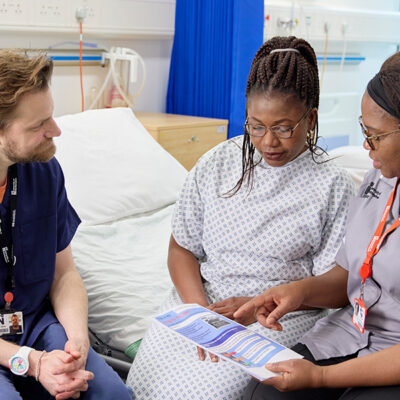
Advanced Clinical Practice MSc
Our programme aims to equip healthcare professionals with advanced clinical skills and knowledge needed to lead...
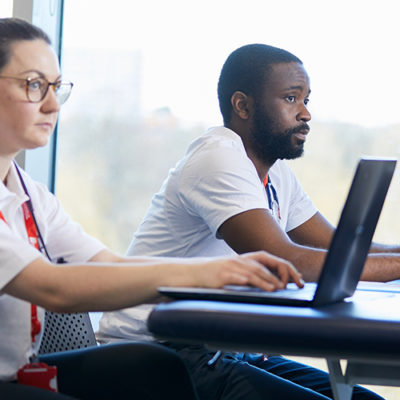
Physiotherapy (pre-registration) MSc
Suitable for those with a relevant first degree and who wish to study physiotherapy via a...







